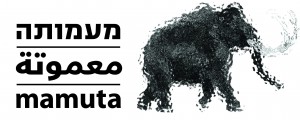Que se vayan todos! All of them must go!
17.9.19-25.10.19
All of them must go! Sala-Manca group, João Delgado, in cooperation with Amir Bolzman and Ariel Armoni, Yeshayahu Rabinowitz and Maya Shleifer Reconstruction of Que Se Vayan Todos! procession: Las Piratas Piratas & Sala-Manca Video of Delgado’s poetry: Collaboration with Dulce (Augusto Zaquetti and Gabi Luraschi)
Que se vayan todos! is a series of art interventions and an exhibition evoking the Argentinian civilian protests of late 2001, in which tens of thousands took to the streets across Argentina to protest the political, economic, and social situation in the country, resulting in changing the regime. The demonstrations came to a head in December 2001, prompting President Fernando de la Rúa to resign and flee in his helicopter from the “Pink House” (the President’s office), across from which the protests were taking place. The spontaneous mobilizations, which gave voice and strength to the citizens, had striking aesthetic, textual, visual, and acoustic manifestations. These aspects are the starting point of the exhibit, whose title, Que se vayan todos! (All of them must go!), is taken from the slogan that expressed the people’s frustration at their lack of representation in the government and the great disappointment from the political leadership. The mobilization and the slogan that came to represent it ultimately led to a change in government in Argentina in 2001 and have inspired popular movements across South America and around the world since then. The series of artistic events begins before the public opening of the exhibit, with two interventions in the public space. The first intervention is the hanging of posters with the slogan Que se vayan todos! . This action straddles genre, being simultaneously a citation, a call for change, and a teaser for the exhibit. The second action is a reenactment of the popular processions known as “cacerolazo” (casserole protest), which took place in Argentina during that period. In these processions, citizens with no specific political affiliation converged spontaneously into a civic carnival. Their kitchen pots (cacerolas) were transformed into the musical instruments that accompanied them in their calls for change. Unknowingly, the citizens were “cooking up” the downfall of the regime. In these processions, they consciously or unconsciously alluded to a different act of civic protest in which, according to Argentinian lore, the residents of Buenos Aires overcame the threat of British occupation by spilling hot oil from their kitchen pots on the conquering British army. Thus a basic kitchen utensil became emblematic of the demand for change, combining the political with the domestic space and being at once a sign of hunger and the sound of revolution. The exhibition includes: A sound installation tribute to the cacerolazo (a collaboration between Sala-Manca and Amir Bolzman together with Ariel Armoni) A reconstruction of the cardboard helicopter displayed at a demonstration in Argentina in 2017 by the artist-activist group Erroristas. The establishment interpreted it as an unequivocal call for toppling the regime, leaving no room for the complex and poetic interpretations intended by the artists. The reproduction is a collaboration between Sala-Manca with Yeshayahu Rabinowitz. A room dedicated to the Portuguese-Argentinian artist João Delgado, who aspired in his works to bring about change through poetry and a variety of artistic projects. Additional events, as well as a series of screenings of films and video, works throughout the exhibition period. The project is an extension of Sala-Manca group’s engagement with the subject of exorcism, which began with the Dybbuk project at the 14th Kola Shel Mila Festival. The project continues with the film-performance The Dybbuk 1937-2017 and in the exhibit There is no Place More Exalted than My Present Refuge.


